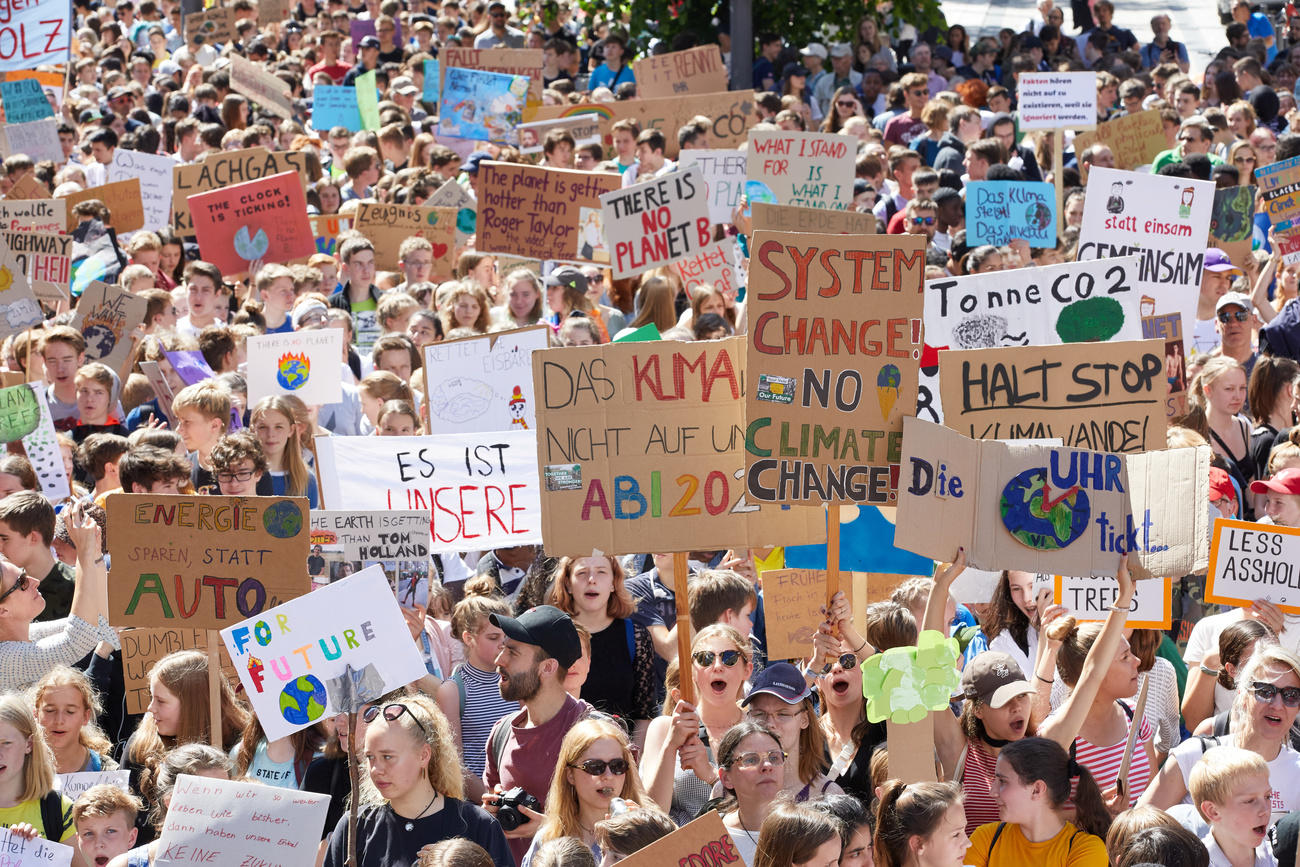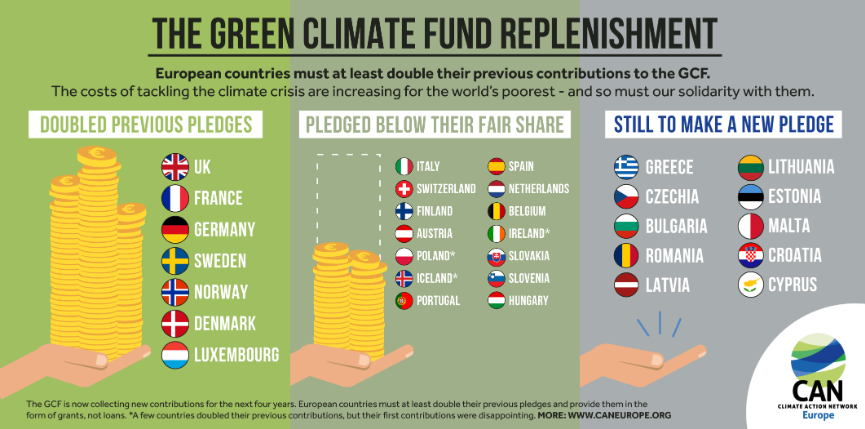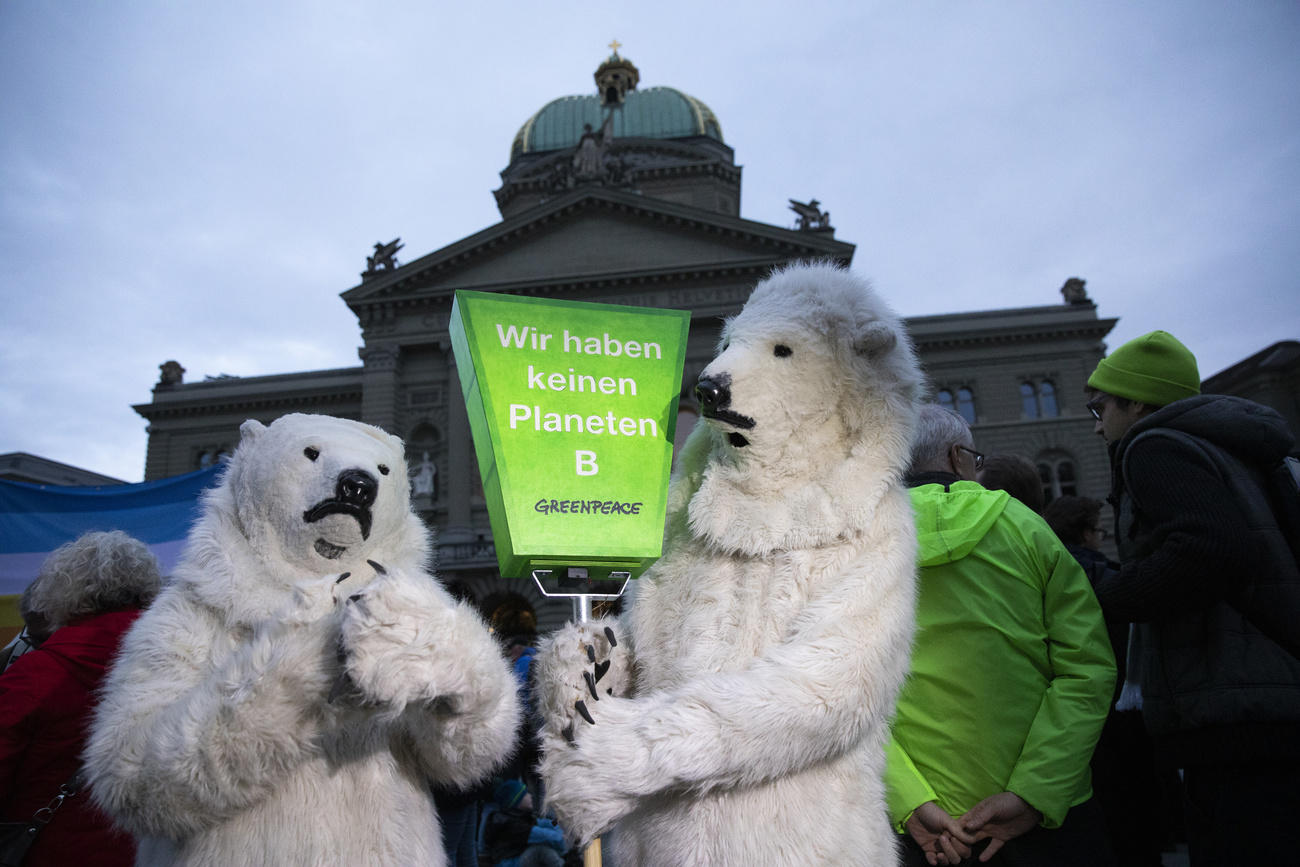COP25: a decisive conference for the future of the planet

The international climate change conference in Madrid (COP25) should lay the groundwork for effective implementation of the Paris Agreement, says the Swiss government. Switzerland wants to achieve a zero net emissions balance by 2050. However, much more needs to be done, argue NGOs.
Observers think it is unlikely that clear and concrete results will emerge from the UN climate change conference (COP25External link), to be held in Madrid from 2 to 13 December. Indeed, the meeting has had a decidedly difficult birth. Initially supposed to be hosted by Brazil, it was then slated to take place in Chile.
But the social unrest shaking that country compelled a change of plans. Alternative venues included Costa Rica, Germany (Bonn), the United States (New York) and Switzerland (Geneva). Finally, just over one month before the start of the conference, the choice fell on Spain.
The Conference of the Parties to the United Nations Framework Convention on Climate ChangeExternal link is an annual gathering in which solutions for dealing with the climate crisis are discussed and negotiated. The objective of this 25th meeting is the adoption of detailed rules for implementing the Paris Agreement, under which signatory countries must tangibly reduce their emissions from 2020. Many of the rules were adopted in Katowice (Poland) in 2018, but a significant number of issues remain pending.
+ Key points of the Paris Agreement
The priorities of the Madrid Conference include establishing more precise rules for emissions reductions via projects abroad, and managing the loss-and-damage mechanism, whereby rich countries must shoulder the economic burden of climate damage of less well-off states.
The meeting will also look at ways of raising ambitions in the future. Next year, the signatory states of the Paris Agreement – not including the United States – must announce their new targets for reducing greenhouse gases by 2030.
Switzerland is calling for strong regulations to be put in place for effective implementation of the Paris Agreement. In particular, it wants clear provisions to ensure that emissions reductions carried out abroad are not counted twice (in the country funding them and the one implementing them). Projects abroad must also not have a negative impact on environment or human rights.
On the sidelines of the Madrid conference, Switzerland will organize a meeting to discuss how global investments can be made more sustainable from a climate perspective, the Federal Office for the Environment has announced. Led by Ambassador Franz Perrez, the Swiss delegation will also comprise representatives of civil society. For the first time, it will also include a young climate activist, the student Marie-Claire Graf.
The COP25 participants must agree on the implementation of guidelines that ensure “real, measurable, verifiable and permanent” emissions reductions, writes Climate Action Network (CANExternal link), an umbrella group of environmental associations that includes WWF Switzerland and Alliance Sud.
The NGOs highlight the need to raise $100 billion a year from 2020 to support climate policies in developing countries. According to current projections, CAN laments that this objective is unlikely to be achieved. The group also criticizes Switzerland for not making a contribution in line with its financial clout. The Swiss government intends to provide $450-$600 million a year.

Concretely speaking, nothing or not much. States have committed themselves to a radical change of course, but the CO2 concentration in the atmosphere – and other greenhouse gases, such as methane – continues to increase. In 2018, it reached a new record and, according to the United Nations, it shows “no sign of slowing down”.
Even if current reduction promises are kept, temperatures will rise by around 3.2 degrees Celsius, the United Nations Environment ProgrammeExternal link predicts. According to this agency, we would have to triple our efforts to avoid irreversible consequences.
Like other countries, Switzerland is aiming for a zero net emissions balance by 2050, which is why the government has adopted reduction measures in the transport, construction and industrial sectors. At the same time, the country is focusing on enhancing natural CO2 sinks (such as forests) and using technology to remove CO2 from the atmosphere.
The Swiss cabinet plans to achieve its goal through future revisions of the CO2 Act. The current revision (covering the period up to 2030) tackles the issue of taxes on fuel and air tickets, for instance. For now, however, the text is held up in parliament, but the recent breakthrough of environmentalists in the federal elections could give it a decisive boost.
This is certainly the hope of Swiss climate protection associations, which denounce a lack of will at the political level. Pension funds and the Swiss National Bank, which are “in some way responsible for the damage caused by global warming”, must also redirect their financial flows and stop investing billions in fossil fuels, writes the Swiss Climate Alliance.
(Translated from French by Julia Bassam)

In compliance with the JTI standards
More: SWI swissinfo.ch certified by the Journalism Trust Initiative





You can find an overview of ongoing debates with our journalists here. Please join us!
If you want to start a conversation about a topic raised in this article or want to report factual errors, email us at english@swissinfo.ch.